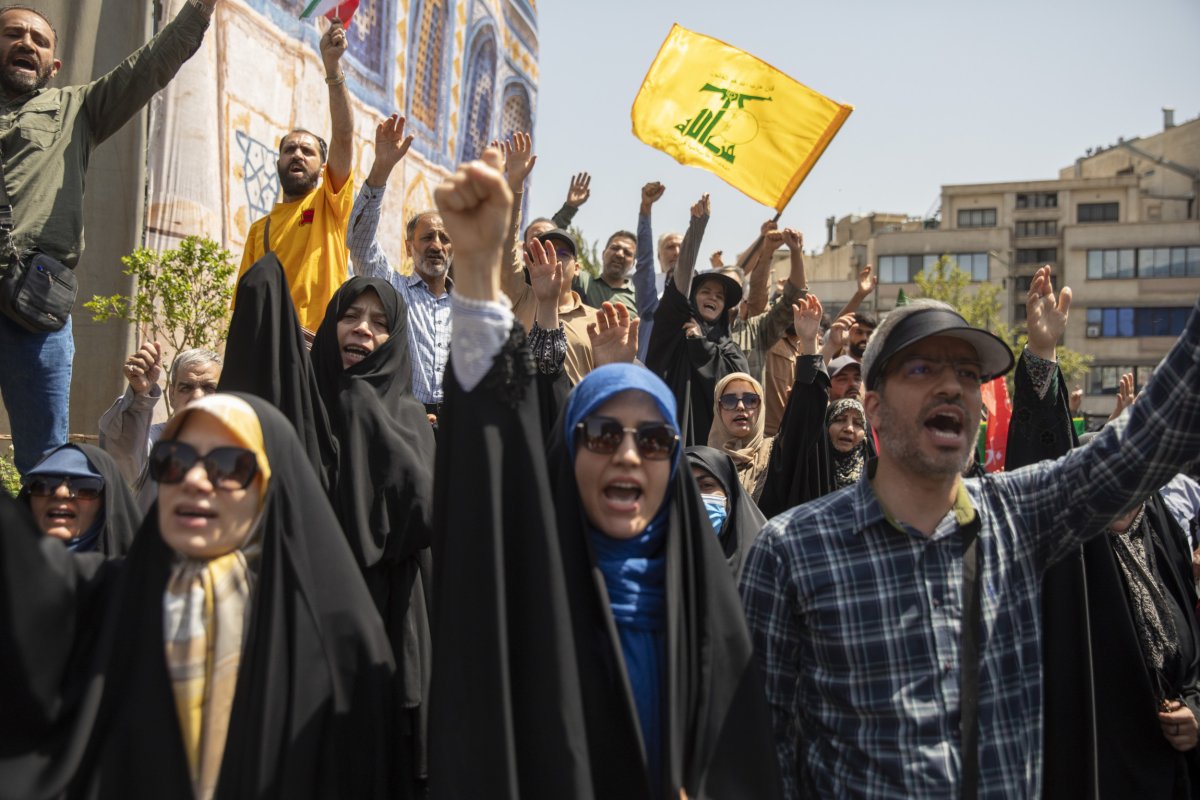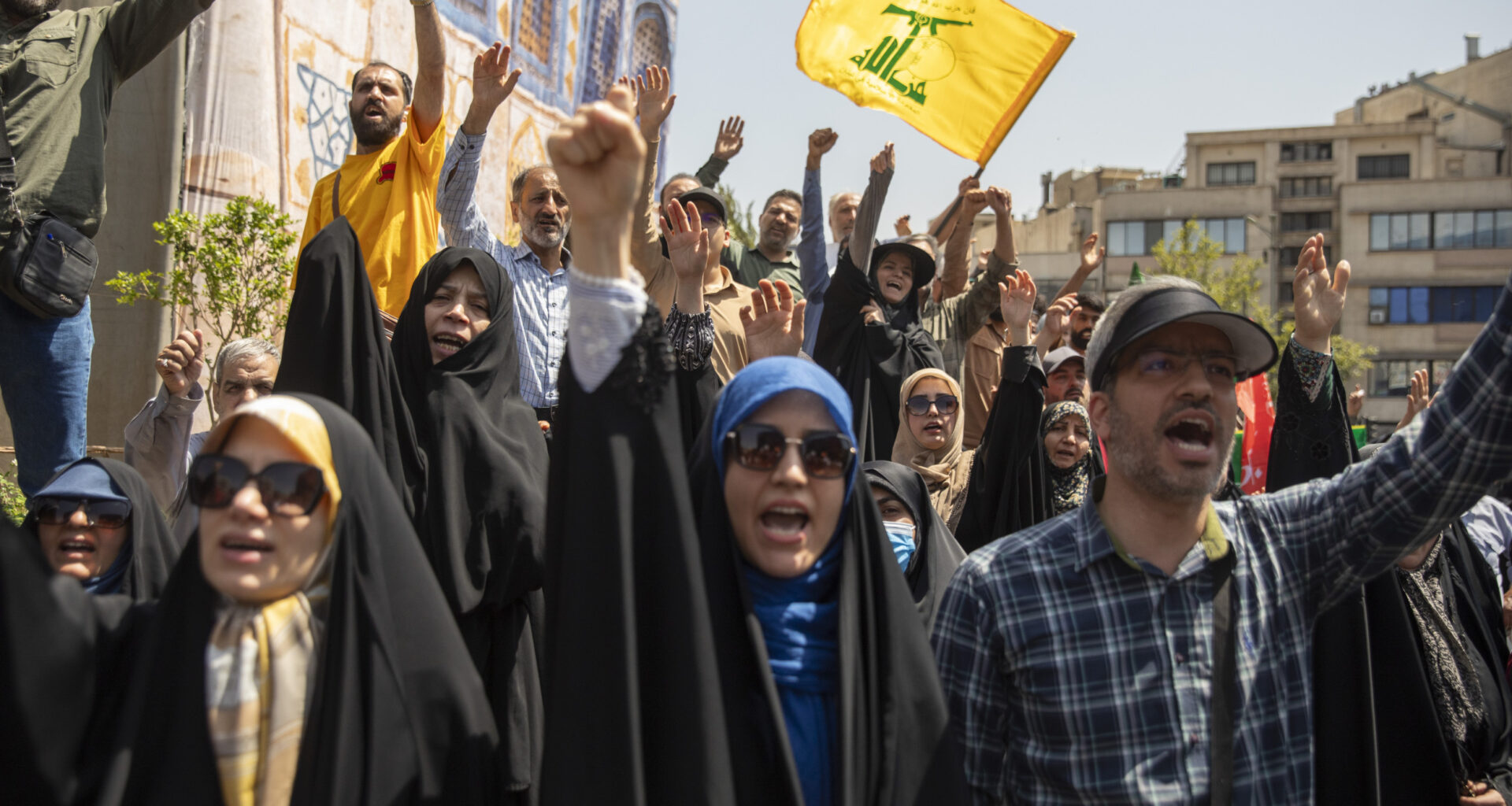A spokesperson for Hezbollah told Newsweek that the Iran-aligned Lebanese militant group did not have immediate plans to retaliate against Israel and the United States after President Donald Trump ordered direct U.S. strikes against Iranian nuclear facilities.
“Iran is a strong country capable of defending itself, logic dictates that it can confront America and Israel,” a Hezbollah spokesperson said in a message to Newsweek late Saturday. “Hezbollah remains committed to all matters agreed upon since the ceasefire.”
Hezbollah signed a ceasefire with Israel last November, just over a year after the Palestinian Hamas movement launched a surprise attack against Israel, sparking a regional conflict that drew in the Iran-led Axis of Resistance coalition.
Israel and Hezbollah have since continued to accuse one another of violating the truce. The Israel Defense Forces (IDF) carried out strikes in recent days against the group’s leadership, special forces and military infrastructure in Lebanon, citing “intelligence indicating Hezbollah’s attempts to rebuild its capabilities.”
“Despite the attacks carried out by the Israeli enemy,” the Hezbollah spokesperson added, “the party has remained committed to the agreement.”
Hezbollah had previously indicated to Newsweek that the group would not intervene directly in support of Tehran after Israel launched a sweeping series of strikes against Iran last week, setting off daily exchanges of fire between the longtime foes.
Yet Israeli Defense Minister Israel Katz warned Friday that Hezbollah Secretary-General Naim Qassem “hasn’t learned from his predecessors and is threatening to act against Israel.” He urged that “the Lebanese proxy be careful and understand that Israel has lost patience with the terrorists who threaten it.”
The Hezbollah spokesperson with whom Newsweek spoke the following day emphasized that Qassem, who assumed the helm after Israel killed longtime leader Hassan Nasrallah last September, has “supported” Iran through his statements, and that future actions may affect the group’s calculus.
“Therefore, the issue remains subject to developments,” the Hezbollah spokesperson said. “However, Iran certainly has its own military capabilities.”

Demonstrators wave Hezbollah flags and cheer during a protest against Israeli attacks on Iran, after the Friday prayer ceremonies on June 20, 2025, in central Tehran, Iran.
Demonstrators wave Hezbollah flags and cheer during a protest against Israeli attacks on Iran, after the Friday prayer ceremonies on June 20, 2025, in central Tehran, Iran.
Majid Saeedi/Getty Images
Trump first announced via Truth Social late Saturday, early Sunday local time in Iran, that the U.S. had completed a “very successful attack on the three Nuclear sites in Iran, including Fordow, Natanz, and Esfahan.”
The strikes came after more than a week of speculation of forthcoming U.S. military intervention, fueled by aircraft movements, the evacuation of nonessential staff and U.S. citizens in the region as well as Trump’s own threats to the Islamic Republic and its leadership, including Supreme Leader Ayatollah Ali Khamenei.
The Fordow Fuel Enrichment Plant had particularly been in focus given that current and former Israeli officials had long assessed only the U.S. military’s Massive Ordnance Penetrator (MOP) “bunker buster” bombs would be capable of destroying the heavily fortified underground facility located beneath a mountain around 20 miles from the city of Qom.
Addressing the nation from the East Room late Saturday, Trump said that “Iran’s key nuclear enrichment facilities have been completely and totally obliterated.” He indicated that he was not immediately planning to pursue further military action against Iran but threatened to do so “if peace does not come quickly.”
Iran has always denied seeking a nuclear weapon, but the country has substantially ramped up uranium enrichment since Trump abandoned a multilateral nuclear agreement with Iran and major powers during his first administration in 2018.
Since Trump assumed office again in January, Tehran and Washington have engaged in five rounds of talks toward securing a new agreement through which Iran’s nuclear program would be subject to restriction in exchange for sanctions relief.
A sixth round of negotiations had been scheduled for last Sunday, but was canceled after Israel launched its unprecedented series of attacks against Iran, killing senior commanders and nuclear scientists as well as targeting military sites and nuclear facilities. Shortly after the Israeli campaign began, Israeli officials alleged that Iran had obtained enough nuclear material to produce 15 nuclear bombs.
Iran has responded to Israeli attacks by launching hundreds of missiles and drones against Israel over the past week. Iranian officials had warned that U.S. bases in the region could be subject to retaliatory action as well if the U.S. became directly involved in the conflict.
Other Axis of Resistance groups in the Middle East, including Iraq’s Kataib Hezbollah and Yemen’s Ansar Allah, also known as the Houthi movement, have also warned of potential attacks against U.S. positions in the region in the event of a U.S. strike against Iran.
About an hour after Trump announced the U.S. operation against Iran on social media, the IDF issued a heightened state of alert for Israel, restricting the public from engaging in all but “Essential Activity.”
Iran later conducted a new around of missile strikes against Israel, followed by an IDF report of Israeli strikes being conducted in western Iran.
Reached for comment, the Iranian Mission to the United Nations shared with Newsweek a social media statement alongside a letter in which Iranian Permanent Representative to the U.N. Amir Saeid Iravani expressed to U.N. leadership his condemnation of what he called “unprovoked and premeditated acts of aggression” by the U.S. and urged the U.N. Security Council to take action.
“The United States and the bloodthirsty Zionist Regime of Israel shall be held fully accountable for these flagrant violations of international law and must face the grave consequences thereof,” the Iranian Mission said.
